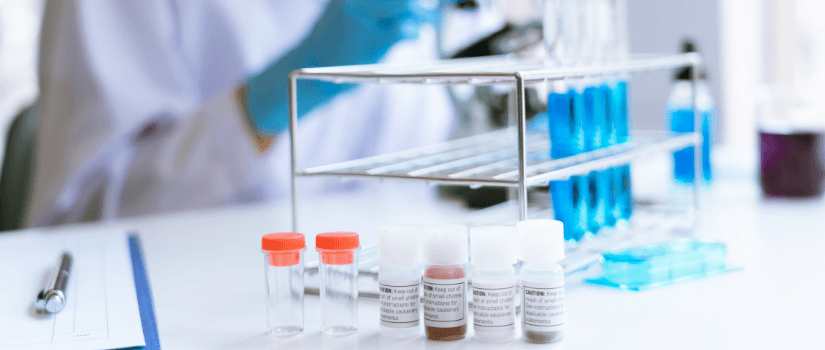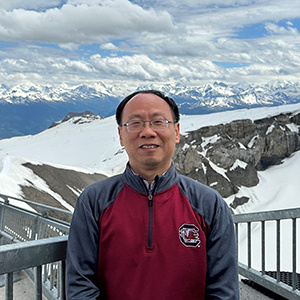Chuanbing Tang, Carolina Distinguished Professor in the Department of Chemistry and Biochemistry, has been elected a fellow of the American Chemical Society, one of the largest scientific organizations and the world leader in chemistry research.
The honor recognizes Tang for leadership and excellence in the field of chemistry as well as his volunteer service for the organization. Tang has previously been elected a fellow of the American Association for the Advancement of Science, among other prestigious honors, but he says receiving the ACS fellowship is especially significant.
“I’ve been an ACS member since day-one as a graduate student, so this is my home society,” Tang says.
His first mentor was his high school science teacher, who encouraged Tang to compete in China’s Chemistry Olympiad program. The experience helped him realize his talent for chemistry, and he went on to study polymer science and engineering at Nanjing University.
Tang then moved to the United States to study at Carnegie Mellon University, where he received his master’s and doctorate degree in chemistry. His post-doctoral work at the University of California Santa Barbara gave him experience in nanotechnology in chemistry and materials science.
Making USC a hub for polymer research
Tang joined USC’s Department of Chemistry and Biochemistry in 2009 when his peer mentor, Brian Benicewicz, was coming on board as USC’s SmartState Endowed Chair in Polymer Nanocomposites, leading the university’s polymer program. Tang was integral in establishing and growing the relatively new program.
Following Benicewicz’s recent retirement, Tang is now the endowed chair and director of USC’s SmartState Center for Polymers. He also launched the National Science Foundation Center for Polymers for a Circular Economy at USC.
This NSF center is part of a national initiative to develop more sustainable plastics. Tang and his team at USC are collaborating with four institutions across the country to identify new ways to make plastic more recyclable and biodegradable than current plastics.
“It has been fantastic,” Tang says. “Everyone is aimed at this big mission, and we are ambitious. It’s an interdisciplinary challenge, so we have to work as a team with everyone bringing their own expertise.”
The center also has engaged in public outreach efforts, which Tang estimates have reached over 10,000 people in the past year. These efforts are raising the profile of the University of South Carolina as a leader in polymer research, and Tang is hopeful that the research endeavors will be substantially expanded in the coming years.
A broad approach to chemistry
While launching the NSF center to study plastics, Tang has also continued his research in biomedical chemistry, with a major study underway on antibiotic therapies. Over the past decade, he has worked with faculty from USC’s School of Medicine in Columbia and the Arnold School of Public Health to develop molecules that can kill bacteria that would otherwise be resistant to antibiotics.
“As a scientist, you want to make your work impactful to the world. This is why I research in multiple areas: you need a broad experience to be creative and think about things differently,” Tang says.
Tang’s versatility in chemistry is one of the reasons he received the honor of ACS fellow, but he’s quick to point out that one of the most important things he’s done during his time at USC has been his service to the community.
His very first summer at USC, Tang spearheaded Project SEED, an ACS-funded program which brings high school students from underprivileged backgrounds into labs for research experience. Tang also has served on a national committee helping other chemists bring Project SEED to their communities.
“Service is really the heart of it for me,” Tang says. “As a first generation Chinese American, giving back through service has always been an important way for me to connect with the culture of the U.S. as well as the chemistry field.”
Now, with fifteen summers of Project SEED at USC, Tang has passed leadership of the program to two of his colleagues in the chemistry department, though he remains involved.
Joel Samuels, dean of the College of Arts and Sciences, says Tang has made valuable contributions as a chemist, mentor and leader at the university.
“Dr. Tang has done much to support his colleagues and bring the chemistry program national and international attention,” Samuels says.
“His advances in polymer research will make a major impact on the future of sustainability and serve to continue USC’s legacy as a center of important advances in polymer chemistry.”

